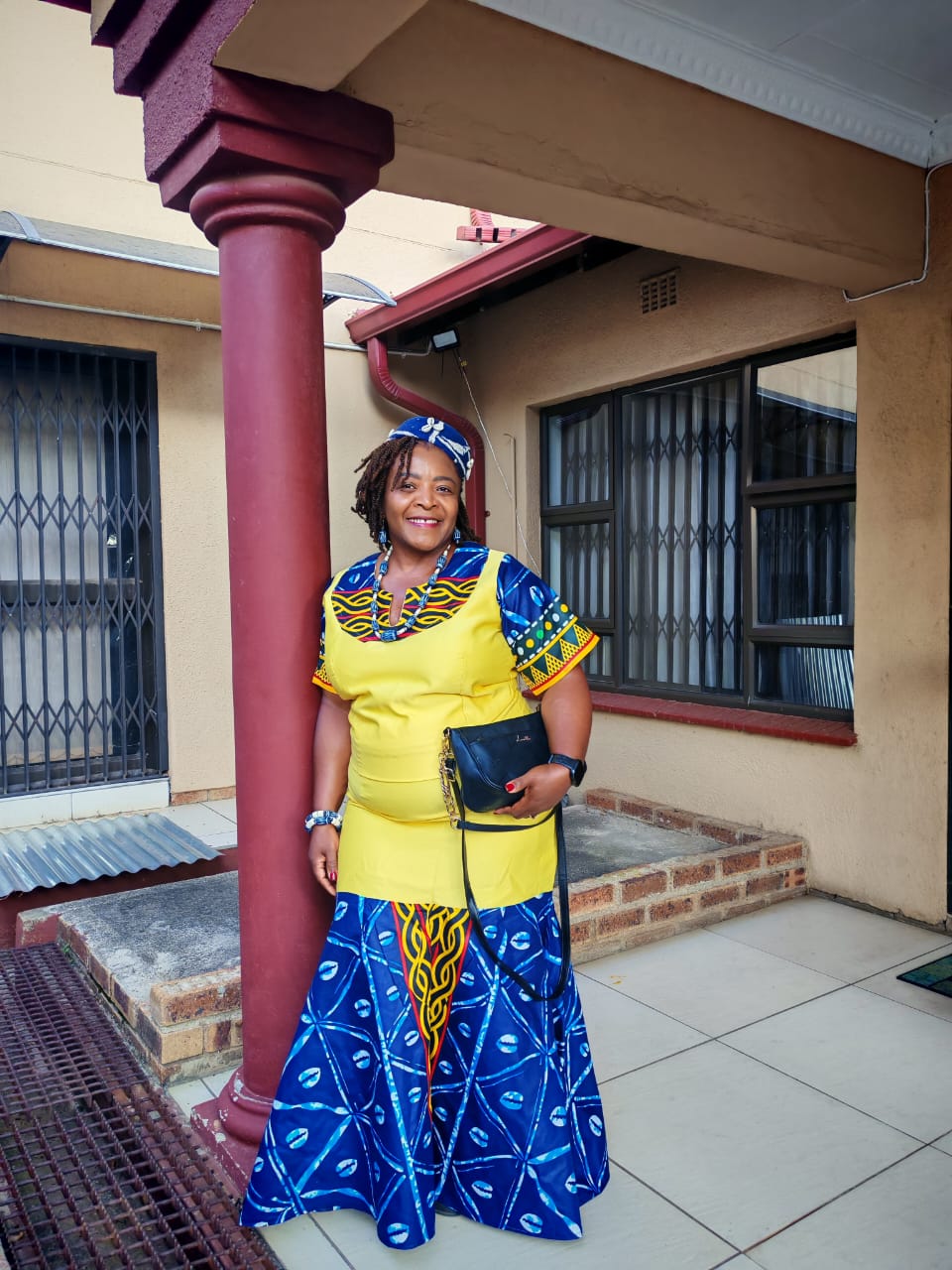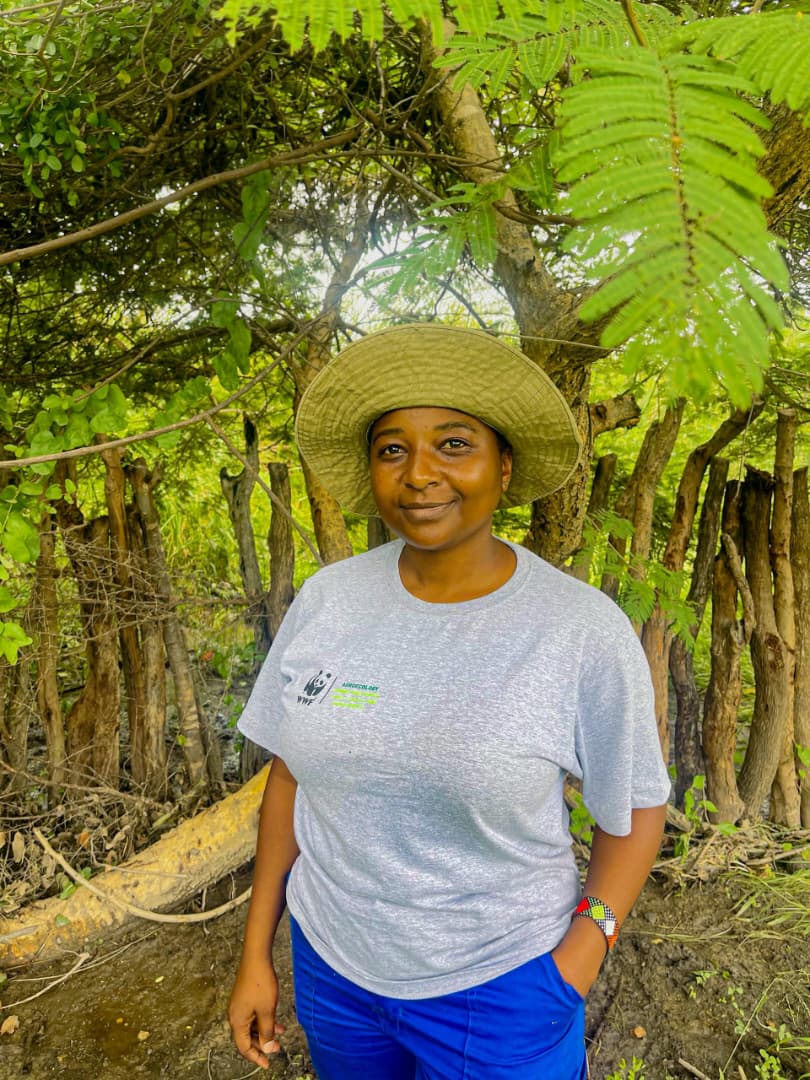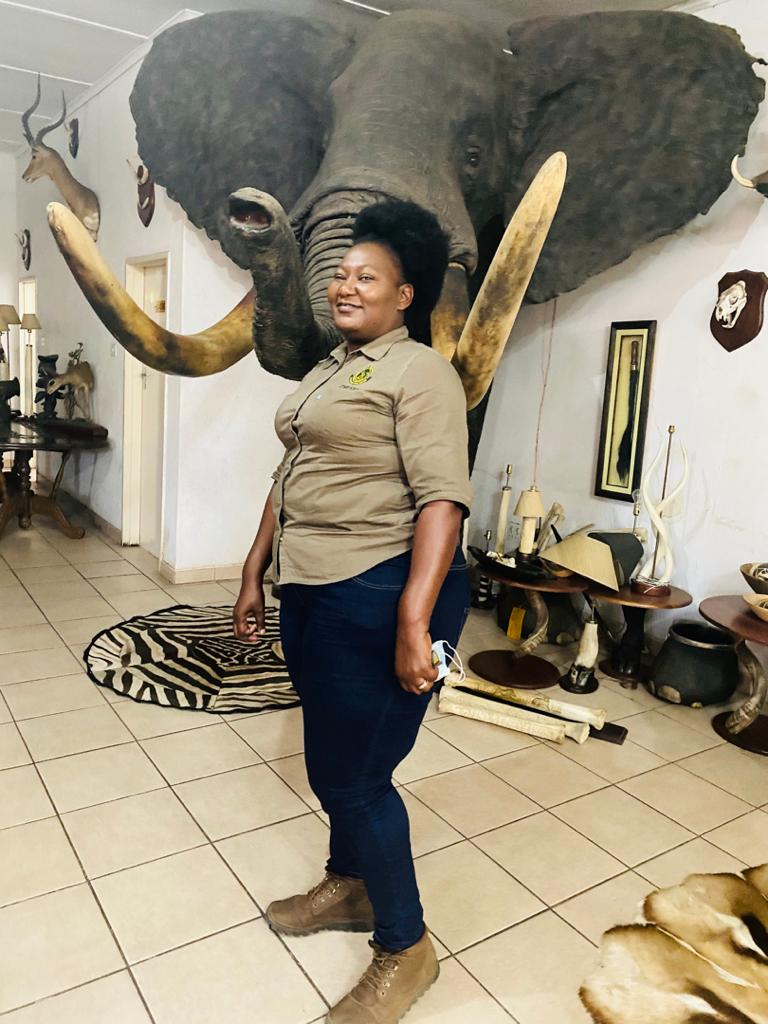“You don’t belong here,” they told her. Repeatedly.
The class had thirty students. Twenty-eight were male. Faïza Rouamba was one of only two females.
In many ways, they were right to point this out. After all, nothing about this picture was unusual. It was an engineering class, and everyone knew ‘engineering was for boys’.
Still, Faïza pushed back, “If I don’t belong here,” she asked in her soft but firm voice, “how come I passed the exam to get in?”

No one had a good answer. And even if they did, it wouldn’t have mattered because if there was anyone who truly belonged in a room full of equations, wires and machines, it was Faïza Rouamba. Those who were questioning her just didn't know it yet.
***
Endlessly curious. Mind constantly running. Always asking how. That was Faïza as a child.
“I used to dismantle objects just to understand how they worked,” she recalls. “Then I’d try to put them back together. Sometimes I succeeded, sometimes I failed.”
Faïza’s curiosity often collided with the rules of her radically strict Muslim household in Burkina Faso, where girls were expected to focus on house chores, not tinker with machines.
And so, she learned to follow the rules. But anyone who’s ever raised a child knows that no matter how hard you try, you can never completely silence who they naturally are. Their true essence always finds a way to shine through.
One day, Faïza took apart her father’s radio. This time, she couldn’t fix it. Her mother, horrified, threatened to tell him. “I was so afraid of what he would do that I went to bed before he got back home that night,” she says.
It was a narrow escape. But not so narrow that it contained Faïza’s spirit. She eventually made it into engineering school, fair and square. So, being constantly questioned whether she belonged in that class wasn’t just tough to hear; it was unfair. She fought back by working hard. Really hard. From her first year to the day she earned her diploma in rural engineering, Faïza remained among the top three performers in her class.
***
More than a decade later, she now works at the intersection of gender, water, sanitation and climate resilience. It may sound like a mouthful, but stay with me. You’ll soon see how women are at the heart of it all and why this work is deeply personal for Faïza.
It goes back to her childhood. To the endless messaging around what she could and couldn’t do. To having to manage the tension between following her curiosity (which translated to taking things apart to see how they worked) and ‘acting like a girl’ (which meant focusing on household chores).
At the time, she didn’t think much of it. But years later, sitting in engineering classes filled with men, everything clicked. The very people who had the privilege of designing water and sanitation systems were rarely the ones who actually interacted with them directly.
“In our communities,” she explains, “it’s the women and girls who are responsible for fetching water for the family. In many cases, that means walking really long distances just to find clean water.”
One obvious solution was to bring clean water and safe sanitation facilities closer to homes. And that is what Faïza focused on. Next, she turned her attention to one of the most overlooked yet defining aspects of women’s lives: menstruation.
In the communities where she works, this remains a taboo subject. “When I try to talk to women about it, many are embarrassed,” she says. “Some even tell me they would rather be pregnant, just to avoid their period for nine months.”
To make matters worse, many girls in schools don’t have proper toilets or facilities to manage their menstrual hygiene. “Some miss classes every month because of it,” Faïza says.
Her solution? To build proper sanitation infrastructure and create training programs that teach girls about menstrual hygiene, not as something shameful, but as something natural.
It wasn’t by chance that Faïza became so passionate about this subject matter.

“When I was a schoolgirl, I remember the day I got my period in class,” she recalls. “My classmates laughed at me. I was so ashamed. In my family, I didn’t have the luxury of being vulnerable. So I hid it, and just kept going.”
That memory faded over time. But when she began working in the field of water and sanitation, it resurfaced with clarity. “Now I understand it was the driving force,” she says. “I don’t ever want to see another young girl feel that same shame.”
Faïza’s work comes full circle with a strong climate dimension. Her team trains women to make reusable sanitary pads in place of disposable ones that end up in landfills or are burned, releasing toxins into the air. “I realised that helping girls manage their periods can also protect the environment,” she says.
The same girl who used to disassemble radios and clocks to understand how they worked is now designing a solution that safely separates materials from used pads and recycles them into usable products, such as paper or bricks.
“Right now I’m testing a machine that separates the blood from the rest of the materials,” she says with excitement. “If it works, then it could be a game changer.”
***
For many, being an engineer means solving technical problems. For Faïza, it’s about solving both human and planetary issues. She admits to being a bit of an outlier and acknowledges that this path hasn’t come without its challenges. The struggles she faced as a student in engineering school followed her into her professional life.
“In my country, there are not many women in engineering, so I often find myself being both the youngest and the only woman in the room,” she says.
In such spaces, her voice and ideas are often overlooked. She recalls one experience in particular where she had to stand her ground:
“The local mining activities were polluting the groundwater with chemical waste. At the time, I was serving as the head of the provincial department of water and sanitation, and I had organised the meeting to find a solution and hold those responsible accountable.
But things didn’t go well. I was insulted, threatened and arrested for speaking up. Everyone else stayed silent. They were afraid of the consequences. But I knew that silence would mean diseases, death and suffering for the community.
What angered me most was how easily some people were willing to sacrifice human life and dignity for profit. I couldn’t stand by and watch that happen. It was scary and really tough. I was young, I was a woman, and I was standing alone against powerful interests. But I refused to back down.
Ultimately, we reached an agreement that was signed by all three parties: the community, my department and the company, with the support of the local police. The agreement clearly stated that the company would cease dumping waste into the community’s water sources. Instead, they would properly manage and treat their waste.

We also established a system of accountability where we reviewed the progress every three months. Each time we noticed something wasn’t working, we raised it, and they were required to fix it. Eventually, they built a proper site for waste disposal and treatment.”
***
At just 35, Faïza has already lived a full and impactful professional life; yet, in many ways, she’s only just getting started, and in the process, discovering herself anew.
“When I was a child, I was a rebel,” Faïza says. “But at the time, I didn’t have the strength to own it. Instead, I constantly felt I had to prove my worth to be accepted. Even when someone gave me something, I would ask myself, What did I do to deserve this?”
That need to please was carried into her marriage. “In a radical Muslim family, when you get married, you are told that even if you suffer, you have no right to leave. You just stay. You keep quiet.”
However, after becoming a mother, Faïza could no longer maintain the façade. “I didn’t want my children to grow up thinking that life was just about suffering and silence.
She didn’t leave the marriage, but she transformed within it. “It was either my husband accepted me as I truly am, or I’d go my own way.”
He chose the former.
“Now, I’m just me. I don’t need to beg for love or validation. I’m at peace.”
Joining the WE Africa program helped Faïza peel back even more layers of her power, including discovering the strength that lies in vulnerability.
“Over the last year, I’ve learned that when you allow yourself to be open and vulnerable, you also allow yourself to find solutions,” she says.
Indeed, finding solutions is Faïzatou Rouamba’s superpower. She continues to dismantle barriers much like she dismantled gadgets to understand how they worked. Only this time, she rebuilds what she dismantles into something better. In the end, the very world of engineering where she was once told she didn’t belong turned out to be the exact place she was meant to be.
***
This interview is part of a series profiling the stories of the 2025 WE Africa leadership programme fellows. African women in the environmental conservation sector who are showing up with a strong back, a soft front, and a wild heart.
***
About Faïzatou Rouamba
Faïzatou Rouamba is a rural engineer and WASH leader from Burkina Faso, passionate about transforming lives through water, sanitation, dignity, and women’s empowerment. Over the years, she has led major projects in water, sanitation, and irrigation while centring gender equity and community wellbeing.
She works to advance menstrual health, menstrual waste management, and circular sanitation solutions that restore dignity for girls and women. Her leadership blends technical expertise with empathy and courage, shaping systems that care as much as they deliver.
Faïzatou believes in building futures where African women lead boldly, heal deeply, and co-create sustainable change.





